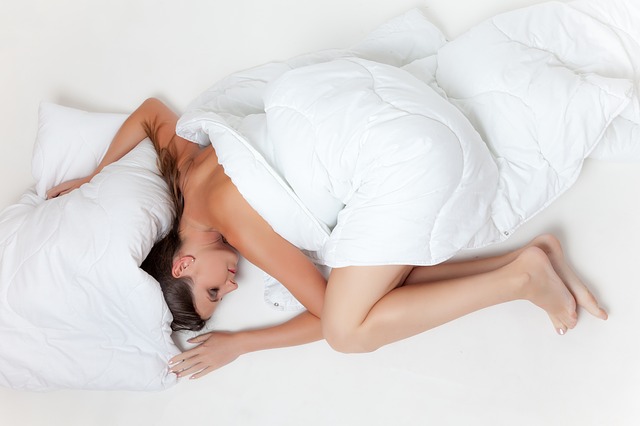Ever wonder why you’re waking up tired even after a full night’s sleep? Have you ever said, I‘m tired but I can’t sleep? It may surprise you that some of the common things we do can actually disrupt the quality of sleep we get.
Sleep Quantity vs. Sleep Quality
In today’s fast paced world, most of us get by on just a few hours of sleep.
A recent study participated by 48 countries found that on average, people sleep 6.8 hours per night. This is much lower than the 8-hour average back in 1942.
In fact, some countries including Japan, Sweden, and India average less than 6 and a half hours of sleep per night. For its part, the U.S. does a fairly good job. As do countries like New Zealand, Finland, Ireland and Great Britain.
According to National Sleep Foundation’s Sleep Health Index, Americans sleep an average of 7 hours and 36 minutes nightly.
That figure goes up by 40 minutes on weekends and holidays, which means that people are also making up for the sleep they lost during the week. The data also tells us that, on average, we go to bed around 10:55 p.m. and wake up at about 6:38 a.m.
Unfortunately, the same index shows that about 45% of the population experiences poor sleep that’s bad enough to negatively affect their daily activities at least once in the past week.
What this tells us is that while you may get enough sleep on a nightly basis, you may not be getting good quality rest. Sleep quantity and quality are essential because you need both to reap all the health benefits of sleep.
So why is it that you may get the recommended 7 to 8 hours of sleep per night but experience poor quality sleep causing you to wake up tired in the morning?
Here are some reasons that may surprise you.
Reasons You’re Waking Up Tired Despite Getting 7-8 Hours Sleep
You Use Digital Devices Close To Bedtime
Digital devices including laptops, mobile phones, tablets and even TVs are great for entertainment. But, using them close to bedtime makes it difficult for you to get proper sleep.
These devices stimulate our minds. This is true whether you’re going through emails, watching action and drama flicks, or playing video games. In doing so, it makes it hard for your brain to wind down when it’s time to go to bed.
Additionally, the light from the screens can mess with your body’s melatonin levels. Melatonin is a hormone that plays a major role regulating our sleep cycles. Our body’s melatonin level rises when there’s little light causing us to feel sleepy.
During the day, the presence of light keeps our melatonin levels low, allowing us to feel awake, active and alert.
When you use your digital devices late at night, the artificial light from their screens disrupts your body’s circadian rhythm. This causes you to experience poor sleep, which in turn, makes you feel sluggish the next day.
A good way to prevent this is to stop using your digital devices about an hour before you plan on going to sleep. This gives your mind some time to wind down and get ready for bed.
You Drink Coffee Late In The Afternoon
Coffee is a great way to stay alert during the day. It helps many people get things done without feeling tired. But, drinking coffee into the mid-afternoon may be enough to disrupt your quality of sleep later that night.
Many of us rely on coffee to stay awake because it is fast-acting, and its effects are long-lasting. On average, it takes just 45 minutes for your body to absorb 99% of the caffeine in coffee. And, the caffeine (along with its buzz) stays in your system for 4 to 6 hours.
So, drinking a cup of coffee as late as 6 hours before bedtime puts you at risk of experiencing lower quality and quantity of sleep.
To avoid this, make sure you stop drinking coffee at least 6 hours before your bedtime.
You Drink Alcohol Before Bed
Many people enjoy a nightcap. Others enjoy a drink in the evening because it helps them unwind after a long day. And, for about 20% of Americans, it’s something that helps them fall asleep.
While alcohol does help you fall asleep faster, research shows that it reduces both quantity and quality of sleep.
Studies have found that drinking alcohol lets you sleep better during the first half of the night. Not only does it help you fall asleep faster, it also lets you experience more deep sleep.
But, sleep quality and quantity suffer during the second half of the night. This is called the “rebound effect”.
Here, those who drink a lot of alcohol tend to experience light sleep during this time. This results in decreased REM (Rapid Eye Movement) sleep. And, in many cases, causes you to wake up a few times to go to the bathroom. Thus, further disrupting your sleep.
To get the most out of sleep, our bodies need both deep and REM sleep. This allows us it to fully recover, repair and re-energize itself.
So, instead of using alcohol or pills to help you fall asleep, try improving your sleep hygiene. Here are some effective tips for better sleep.
Do You Sleep With A Partner?
Data shows that about 60% of people sleep with a partner. So, the question is, are you better off sleeping alone or with someone else.
Co-sleeping has its benefits. Studies show that many people gain from the psychological and emotional connection of sharing a bed with their partner.
However, that may or may not be the case for you. In fact, a recent survey by the National Sleep Foundation shows that 25% of married couples sleep in separate beds. This is probably because they sleep better alone.
Because everyone has their own sleep habits, how well you sleep with someone depends on two factors, you and your partner. Thus, how much rest you get ultimately depends on how peacefully you co-exist with your partner through the night.
Because everybody sleeps differently, the only way to know is through experience. Some people are quiet sleepers, others snore or grind their teeth. Meanwhile, there are those who like to roll around, change positions frequently or spread their arms and legs while sleeping.
For these reasons, some couples have difficulty sleeping together.
In fact, research shows that some women experience poorer sleep when they share the bed with their partners. Interestingly, having sex before going to bed somehow solves the issue. Men, on the other hand, don’t seem to be affected as much.
To sum things up, when it comes to sleeping alone or with someone else, there is no definite answer. You’ll need to try it out and decide for yourself.
Do You Let Your Pets Or Kids Sleep In Bed With You?
In certain situations, kids and pets find their way onto your bed.
In fact, the latter is quite common. According to the American Pet Products Manufacturers Association, about 42% of all dog owners let their pets sleep in the bed with them.
Like sleeping with your partner, sharing the bed with your child or pet has its benefits. Unfortunately, it can also disrupt your sleep patterns.
This can happen when you, or they, move or change positions during the middle of the night. Dogs and cats can likewise lick you or ask to be petted.
Did You Eat Anything Before Bed?
We often feel tired and sluggish after eating a big meal. The same is true when we enjoy sweets or carbs. This is why eating close to bedtime can sometimes help people fall asleep faster.
Unfortunately, in doing so, you’re sacrificing the quality of sleep you get. Research tells us that both men and women are affected by this, though women seem to be more so than men. Here’s what the study found.
Men who ate high-fat meals close to bedtime experienced decreased REM sleep. They also spent less time sleeping and more time in bed awake.
Women were affected by both high-fat meals and large meals. The former makes it difficult to fall asleep, increases the likelihood of waking up after falling asleep, and delays REM sleep.
Meanwhile, consuming more calories meant taking more time to fall asleep and spending more time in bed awake.
Just as going to bed hungry makes it difficult to fall asleep, eating a large meal close to bedtime also disturbs your sleep quality. In addition, it increases your risk of indigestion and acid reflux.
To avoid this, make sure to have your final meal of the day at least 2 to 3 hours before going to bed.
You can find much more information on living a holistic lifestyle in these free magazines and on our YouTube channel.

Emma is the editor of Health Grinder, a health and nutrition blog whose mission is to help people eat better and lose weight. She is a proud mom of two young kids and loves dogs.






